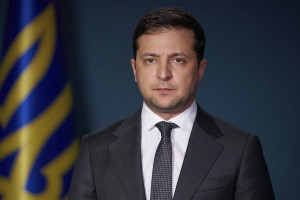New Wave of Sanctions Against Banks and Financial Companies. What is Important to Know

The US sanctions regulator, the Office of Foreign Assets Control (OFAC), has introduced new large-scale sanctions against the Russian financial sector. The blacklist (SDN, Specially Designated Nationals List) includes more than 50 banks, including the systemically important Gazprombank, its foreign subsidiaries and the bank Dom.RF. Restrictions have also been imposed on several dozen financial companies, mainly registrars and depositories. The former maintain registers of owners of registered securities, while the latter are responsible for recording transactions with securities.
Personal sanctions affected 11 heads of the Bank of Russia, including the first deputy chairmen of the Central Bank Vladimir Chistyukhin and Dmitry Tulin, deputy chairwoman Olga Polyakova and heads of departments.
Systemically important credit institutions have not been subject to US sanctions since the summer of 2023, when the restrictions were extended to T-Bank (former Tinkoff Bank). However, the key financial infrastructure of the Russian market was targeted not so long ago - in June 2024 , sanctions were imposed on the Moscow Exchange group, which led to the suspension of organized trading in dollars and euros. The Central Bank's management last encountered US sanctions in the fall of 2022: OFAC added the head of the regulator Elvira Nabiullina and her first deputy Olga Skorobogatova to the SDN list.
The new sanctions were introduced by the outgoing administration of US President Joe Biden, a Democrat who will step down in January 2025 to Republican Donald Trump, who won the presidential election.
Why US sanctions against Gazprombank are dangerousGazprombank plays a key role in settlements with foreign buyers of Russian gas. In March 2022, after the start of the Russian operation in Ukraine and Western sanctions against Russian businesses, President Vladimir Putin signed a decree defining a new procedure for settlements for this raw material with unfriendly countries in rubles. According to it, to make gas transactions, a foreign buyer must open two special accounts in Gazprombank: a ruble account and a foreign currency account. Payment for gas was made by transferring funds to a foreign currency account. The bank then sold this currency on the Moscow Exchange and credited the rubles received to the ruble account. In June 2024, after US sanctions against the Moscow Exchange and the suspension of organized trading in dollars and euros, the Bank of Russia adjusted the procedure for settlements for gas - gas buyers from unfriendly countries must convert currency through an "authorized bank", that is, Gazprombank.
In January-October 2024, Russia increased its pipeline gas exports to Europe by more than 15%, to 26.52 billion cubic meters. European countries also buy Russian LNG by sea and do not impose sanctions against it, as is the case with oil. Fuel supplies from Russia mainly went to Austria (they were stopped in November) and Slovakia, and Italy and Hungary also received it. Against the backdrop of sanctions, Russia redirected some of its gas supplies from Europe to China .
In addition to Russia's Gazprombank, its subsidiaries in Switzerland, South Africa, Hong Kong, Luxembourg and Cyprus were also subject to US restrictions.
"Sanctions against two larger players - Sberbank and VTB - in 2022 are comparable to today's measures against GPB, although the consequences for Russian foreign trade will be even more tangible," says international sanctions expert George Voloshin. He explains this by the importance of Gazprombank in the current system of international settlements. The US OFAC did not include GPB in the license for financing energy transactions, and in fact this means that European countries will no longer be able to pay for Russian gas, the expert believes. According to the general license 113 of the US Treasury, all transactions with GPB and other banks must be completed by December 20, but OFAC has authorized transactions involving GPB aimed at ensuring supplies from the Sakhalin-2 project until June 28, 2025. After being sanctioned, GPB automatically falls into the category of organizations whose cooperation with third-country banks is subject to American secondary sanctions (according to Executive EO 14024), Voloshin recalls.
US restrictions against Gazprombank may indeed affect the payment of energy transactions, but they do not completely exclude the possibility of settlements for European countries, argues senior partner of the Pen & Paper law firm Anton Imennov: “US sanctions prohibit interaction with Gazprombank of persons under US jurisdiction. Therefore, if settlements are made by non-US persons and not in US dollars, then such settlements remain possible, albeit under the threat of secondary sanctions, which is especially relevant for large and systematic transactions.” The lawyer admits that in practice, many financial institutions and companies comply with US sanctions regardless of direct ties to American jurisdiction, fearing secondary sanctions. RBC sent inquiries to Gazprom and the European Commission.
Gazprombank is also one of the few banks offering Russian individuals UnionPay payment system cards that can be used to pay abroad. UnionPay cards of other players that were previously subject to sanctions have stopped working abroad. We are talking about T-bank, MTS-bank, Primorye bank, Saint Petersburg bank and others. In addition to Gazprombank, another Russian UnionPay issuer, Primsotsbank, was added to the SDN list on November 21.
After the sanctions were announced, Gazprombank reported on its Telegram channel that all of the bank's services within Russia would continue to operate. This also applies to cards of foreign payment systems. GPB did not specify whether UnionPay cards would function abroad. The bank also did not comment on whether the sanctions would affect the existing system of international payments for Russian gas.
What are the risks of sanctions against other banks?The expansion of sanctions affected three credit institutions from the top 50 by assets: Dom.RF Bank with assets of 3.26 trillion rubles, BBR Bank, and the National Reserve Bank. Trust Bank, which operates not as a classic credit institution, but as a bank of non-core assets, was also included in the SDN list. Among other things, it is engaged in collecting funds from former owners and top managers of failed banks abroad. Another eight players included in the sanctions are in the top 100 by assets. OFAC also warned that it continues to investigate Russian and foreign employees working in foreign branches and representative offices of Russian banks for the purpose of adding them to the SDN list.
The simultaneous introduction of sanctions against a large number of medium and small banks is “no less of a problem than the sanctions against GPB,” says Igor Kuznets, a partner at FTL Advisers.
"These banks served as the main bridge for settlements and transfers to foreign banks. From these banks, it was possible to make transfers in rubles to friendly jurisdictions, conduct conversion transactions outside the Russian Federation, and then make settlements in foreign currency with foreign counterparties. Now this channel has narrowed significantly, since in practice such opportunities are left either to even smaller banks that were not included in the sanctions network this time, or to subsidiary banks of foreign groups, which will now become even more cautious with regard to any international transactions," the expert states.
The expansion of restrictions on Russian banks means continued pressure on the situation with international payments, agrees NSP lawyer Gleb Boyko. "This will complicate settlements in cases where all counterparties to the transaction agreed to use a Russian bank for settlements. At the same time, there are already many schemes for settlements for export/import, in some of which there is no cross-border movement of funds at all," says RBC's interlocutor.
In 2024, after the US President issued an executive order on the risk of secondary sanctions for foreign banks, Russian exporters and importers experienced difficulties with cross-border settlements.
“There remain a number of unsanctioned Russian banks, subsidiaries of foreign banks, and money transmitters that may continue to service legitimate transactions, including non-commercial personal transfers,” OFAC said in its statement.
Transfers can still be made through banks that are not subject to sanctions, but the window of opportunity is “narrowing,” Voloshin notes: “Foreign correspondent banks will work even more cautiously with Russian respondents, transaction costs and processing times for cross-border payments will increase even more. Other options include cryptocurrency , cash, barter, and making payments through non-bank payment systems.”
"Apparently, options for companies to open accounts directly in banks in neighboring countries, primarily the CIS, will become increasingly popular. However, this opportunity is already seriously limited, since in practice foreign banks are very cautious when working with settlements that have a Russian element," Imennov admits.
The US Treasury Department also warned of the risk of secondary sanctions against foreign financial institutions that have joined or are planning to do so in the Russian equivalent of SWIFT, the Financial Messaging System (SPFS).
The report emphasizes that Russia uses the SPFS to “maintain international financial connections, evade sanctions, and finance military action.” Therefore, OFAC will treat joining the SPFS following the issuance of this alert as “a red flag and is prepared to aggressively pursue sanctions against such entities.” All interested parties are also encouraged to assess their risks to entities that have joined the SPFS, as they may be used to evade sanctions, the report says.
Now OFAC will consider the accession of foreign banks to the SPFS as a "red flag", believes Ksenia Kasyanenko, head of the international department of the Regionservice Bar Association. "Considering these circumstances, there is a high probability that banks from friendly countries will stop working with this system due to fears of being subject to secondary sanctions," she admits.
There is no need to expect major consequences, says Boyko. "The SPFS system is already used mainly by domestic and friendly banks. Friendly banks, for whom compliance with US sanctions is important, would hardly connect to the SPFS without any warnings," the lawyer argues.
What will sanctions against registrars and depositories lead to?Today, 29 out of 31 companies included in the register of registrars of the Bank of Russia and having permission from the regulator to maintain registers of owners of registered securities fell under restrictions from the US. Another 11 new sanctioned companies operate as depositories, i.e. are responsible for recording transactions with securities.
In early October, OFAC issued a warning that it was investigating the activities of Russian registrars for potential sanctions. They attracted the attention of the US Treasury Department after the publication of a decree by President Vladimir Putin that changed the procedure for recording securities. According to it, Russian depositories are required to transfer shares of Russian joint-stock companies (JSC) stored in type C accounts from the National Settlement Depository (NSD) directly to the relevant registrars. Thus, the NSD, which fell under US sanctions this summer, will be removed from the chain of ownership of securities acquired by non-residents. The Central Bank's press service explained the appearance of this decree by the need to protect the Russian stock market from an influx of shares owned by non-residents.
Targeted sanctions against registrars and depositories effectively reinforce OFAC's warning, Boyko says.
Restrictions against registrars and depositories mean that such market participants will not be able to register or hold securities acquired or managed by foreign brokers, Voloshin explains. “Russian brokers with an international presence will most likely also be forced to refuse to cooperate with them,” the expert adds.
"This is a fight against mechanisms for unblocking assets blocked abroad. The new restrictions prevent the possibility of direct ownership of shares through registrars, and also call on nominal holders to block assets that they record in favor of their depositors," explains Nikita Ershov, senior lawyer at the Monastyrsky, Zyuba, Stepanov and Partners law firm. According to him, these restrictions further "immobilize" securities stored in these depositories - this situation is similar to the blocking of securities in the NSD.





















































